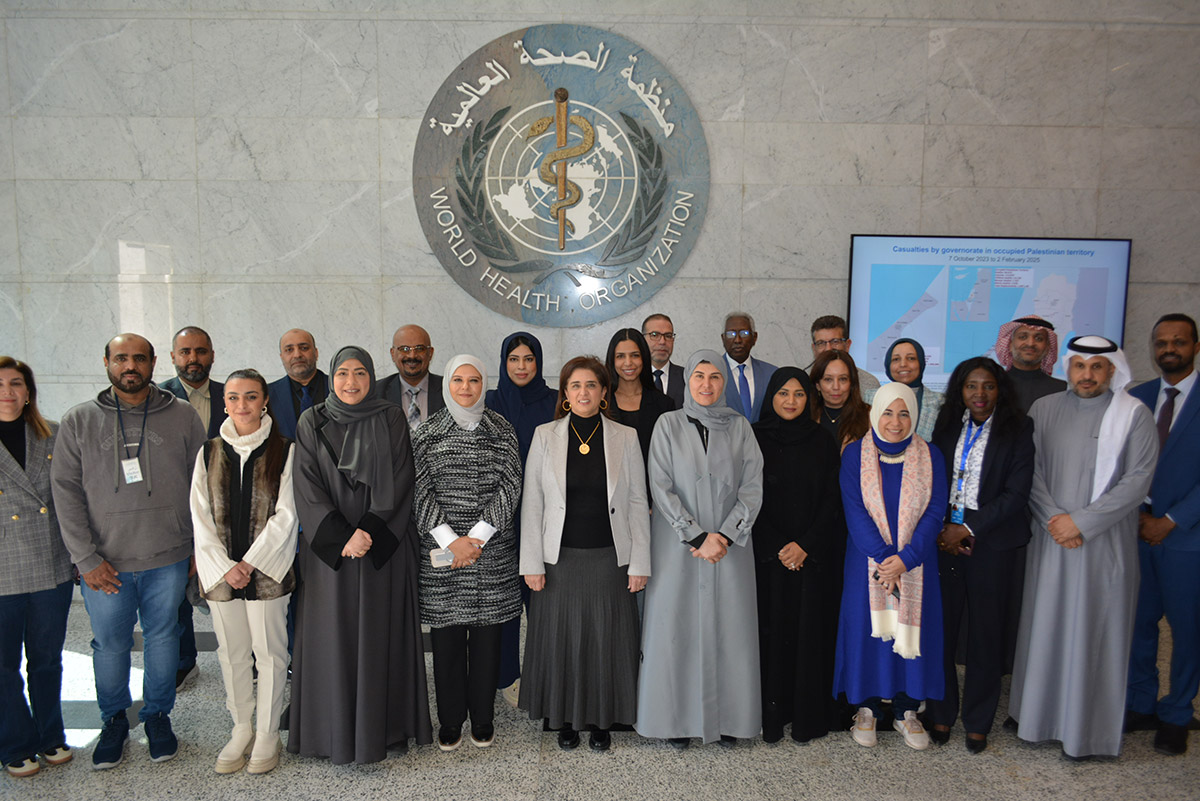 4 March 2025, Cairo, Egypt – In an increasingly interconnected world facing a growing number of complex health emergencies, strengthening global health security is vital. To address this critical need, the World Health Organization (WHO) Regional Office for the Eastern Mediterranean convened a subregional workshop in Cairo from 11 to 13 February 2025 focused on enhancing understanding and implementation of the recently amended International Health Regulations (IHR) (2005).
4 March 2025, Cairo, Egypt – In an increasingly interconnected world facing a growing number of complex health emergencies, strengthening global health security is vital. To address this critical need, the World Health Organization (WHO) Regional Office for the Eastern Mediterranean convened a subregional workshop in Cairo from 11 to 13 February 2025 focused on enhancing understanding and implementation of the recently amended International Health Regulations (IHR) (2005).
The workshop brought together key representatives, including national IHR focal points and WHO country office staff from the countries of the Gulf Cooperation Council (GCC) – Bahrain, Kuwait, Oman, Qatar, Saudi Arabia and the United Arab Emirates. IHR focal points play a crucial role in protecting global health security by ensuring their countries are prepared to detect, assess and respond to public health threats.
The increasing incidence of complex health emergencies, ranging from infectious disease outbreaks – including the COVID-19 pandemic – and natural disasters to chemical and radiological incidents, underscore the urgent need for a robust and adaptable global health security framework. In response, the World Health Assembly adopted amendments to the IHR that aim to close critical gaps in preparedness, surveillance and response mechanisms. The amendments are set to come into force on 19 September 2025.
The Cairo workshop provided a platform to equip national focal points with the knowledge and skills needed to effectively implement the amendments. Participants engaged in a dynamic, hybrid learning experience combining presentations, open discussions, group work and simulation exercises. This interactive approach fostered a deeper understanding of the IHR, the latest amendments and their practical application.
The workshop's objectives were threefold:
- Deep dive into the IHR and amendments. Participants explored IHR (2005) in detail, including the rationale and significance of the recent amendments. This comprehensive overview ensured a strong understanding of the legal frameworks, obligations and recommendations underpinning global health security.
- Practical application and national command chain structures. A key focus was on the practical application of the amendments. Each country worked to identify and define key elements of its national command chain structure for health emergencies. The workshop facilitated discussions on subregional coordination, emphasizing the importance of cross-border collaboration and support for enhanced preparedness and response. Participants provided recommendations to WHO on next steps for national training initiatives, with a focus on engaging sectors beyond health.
- Update on international initiatives. The workshop provided an update on other important international initiatives, including ongoing discussions surrounding a potential WHO convention, agreement or other international instrument on pandemic prevention, preparedness and response. The connection between these initiatives and the implementation of IHR and its amendments was highlighted.
The workshop has significant expected outcomes. Participants gained a thorough understanding of the amendments and their implications for national implementation. They also gained practical insights into managing public health emergencies through simulation exercises, strengthening their preparedness and response strategies.
Each country developed a customized command chain structure for improved coordination during health crises, identifying existing gaps and enhancing engagement with non-health sectors. The workshop also facilitated the collection of recommendations for national training initiatives to boost multisectoral collaboration and strengthened subregional coordination, promoting cross-border collaboration and resource sharing for improved collective preparedness and response.
The Cairo workshop was an important step towards strengthening global health security. By empowering national focal points with the knowledge and tools they need to effectively implement the IHR amendments, the WHO Regional Office for the Eastern Mediterranean is fostering a more robust and coordinated global response to future health threats.


